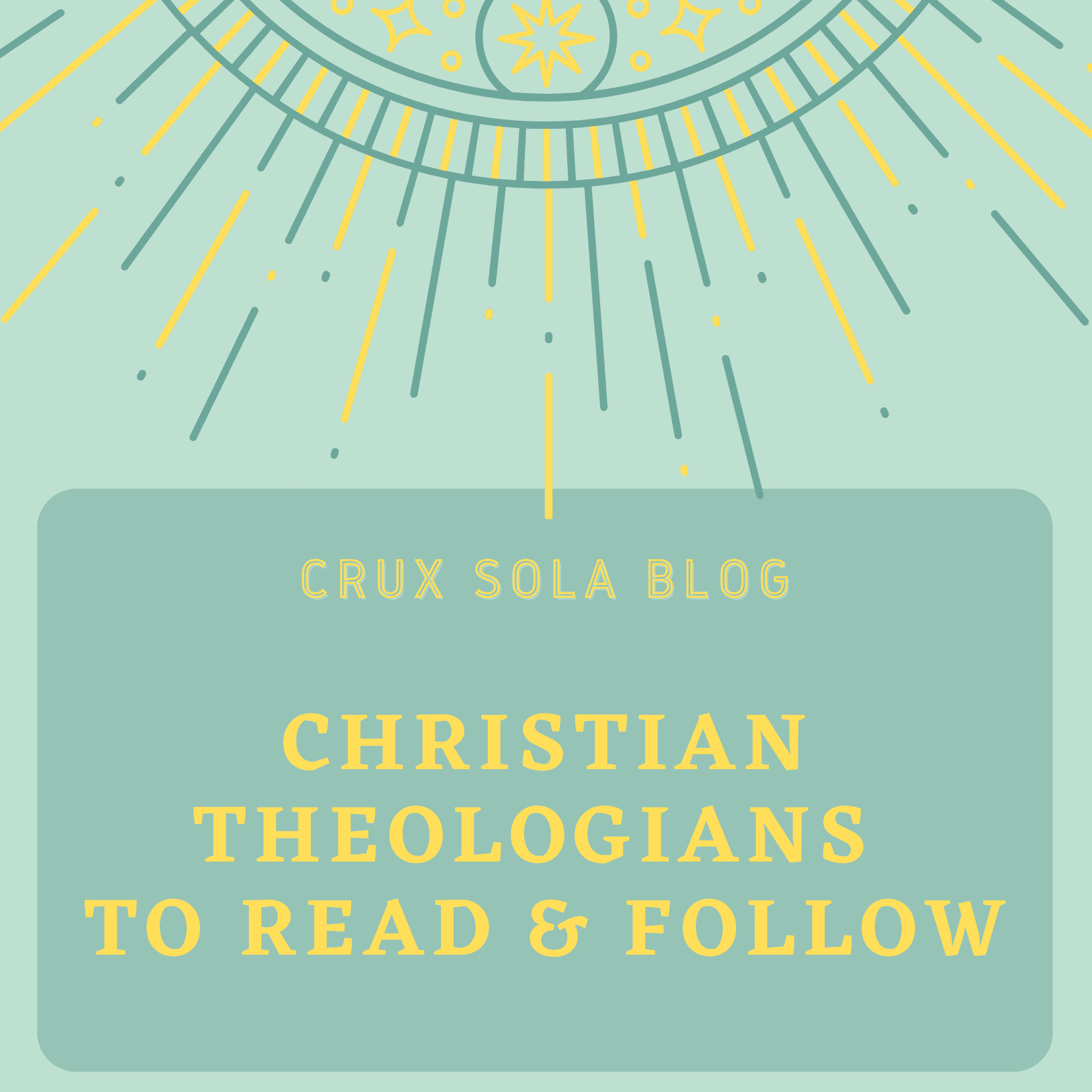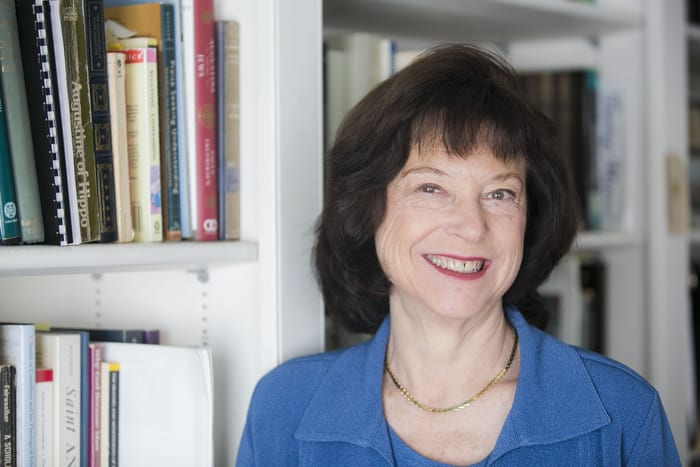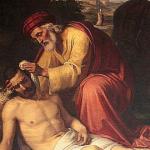
Ellen T. Charry, Margaret W. Harmon Professor of Systematic Theology Emerita, Princeton Theological Seminary

Why do you love teaching and researching about theology?
I love teaching theology because it gives students a bigger monitor with which to see God, the world, and themselves. Placing a new idea before someone and seeing a few open their eyes to it is thrilling because ideas shape values, attitudes, behavior, and identity. In any class if 10-15% are able to lift their lids to a new thought even for a few minutes I will have succeeded as a teacher. Realistic teachers sweat over how to render outmoded now impenetrable intellectual worlds decipherable in a later intellectual world. Theological concepts birthed in intellectual frameworks now meaningless to us will fail. A good theology teacher will translate from ancient intellectual language to our own, lest repeating thoughts that made sense centuries ago indoctrinate students into parroting meaningless beliefs that they do not understand. It is no wonder that theology is excoriated from Christian pulpits.
Theological research and reflection have sustained my imagination for 50 years because religion matters. It is the second if not the first cause of violence and hatred in history. I concluded that so destructive a phenomenon should be eliminated. But then I realized that we—I—need it. So my task became not eliminating religion but helping it become the least harmful version of itself. That suffices for several lifetimes.
What is one “big idea” in your scholarship?
Given that my interest stems from the dangerousness of religion—with its long pedigree—the one big idea in my scholarship is peacemaking. I have worked at peacemaking between modern secular psychology and theology, between seemingly endless intra-Christian polemics that sustain ancient arguments whose time has passed but most centrally the inordinate destructive hostility between Christianity and Judaism.
Who is one of your academic heroes and why do you admire them?
The first theologian I turn to is Augustine. There is much in him with which I disagree, but his prodigious mind is always worth attending to. He is the heavyweight of western Christianity and irrevocably shaped it. He gave us the spiritual life, the divided self, the theological understanding of the church and the sacraments. Above all he taught us to penetrate material goods and interests to disclose their eternal value that enhances us morally, intellectually and socially. Though ephemeral loves beckon he taught us that savoring joys that cannot fade is pure joy. He fought against the macho arrogance of thinking that we can go it alone. On the contrary we need God. And…he was properly respectful of sex, an idea that has quite vanished from our outlook.
What books were formative for you when you were a student? Why were they so important and shaping?
Ah, how to choose. Well, I suppose that the most important is the Bible. Having studied the Hebrew Bible in its mellifluous Hebrew, it is embedded in me. The Younger Testament lifted my eyes to too many things to be able to recount here. Perhaps the most riveting is that God has given us the ministry of reconciliation (2 Cor 5). I could plant my feet there. Of course, Augustine’s Confessions is high on my list. One cannot be an educated person without having read it. For modern theology the most important influence on me was Karl Barth. I learned much from him although I had to depart from his ideology.
Read Charry’s Work
Hmmm. Depending upon readers’ interests I must name three. By the Renewing of your Minds and God and the Art of Happiness are a pair. They seek to overcome the unfortunate disciplinary division of dogmatic theology from “practical theology” and ethics as if such separations are cogent. For an easier read I commend my Brazos commentary on Psalms 1-50: Sighs and Songs of Israel. It was the most liberating work I have ever done. But I had to move on to my current project: Who is the Israel of God? A Post-Polemical Proposal. It offers peace between Judaism and Christianity.
Follow Charry Online
I am on Academic.edu
I have a scripture blog at Good Shepherd Rosemont
If you ran into me at a conference, and you didn’t want to talk about theology, what would you want to talk about?
I am notoriously bad at small talk and I am short on having fun, though family and friends urge me to try. I enjoy (killing) houseplants, cannot exist for an hour without Baroque music, and am nurtured by all the fine arts. I can talk about the graphic and performing arts, philosophy, politics and current events, but not recipes, or “organ recitals.” I am totally ignorant of popular culture after 1959 when I threw out albums of Frankie Avalon and Fabian I had received as gifts and went to the opera.
What is a research/writing project you are working on right now that you are excited about?
Who is the Israel of God? A post-polemical proposal is the culmination of my intellectual efforts. Judaism and Christianity have both contested the other’s theological legitimacy since their inception. Each claims to be the exclusive Israel of God at the expense of the other. Because Christianity almost always held political power Judaism was always on the defensive both theologically, socially, legally and economically. The perennial “war” is powered by opposing theological claims to God’s favor. It is time to put this conflict down. That will be painful and difficult but I believe it is theologically possible. Relinquishing polemics to defeat the other and apologetics to demonstrate one’s superiority over the other is untried, yet it is the only way beyond animosity and toward peace. For if Judaism and Christianity can put down their enmity perhaps other seemingly intractable conflicts can as well.

















